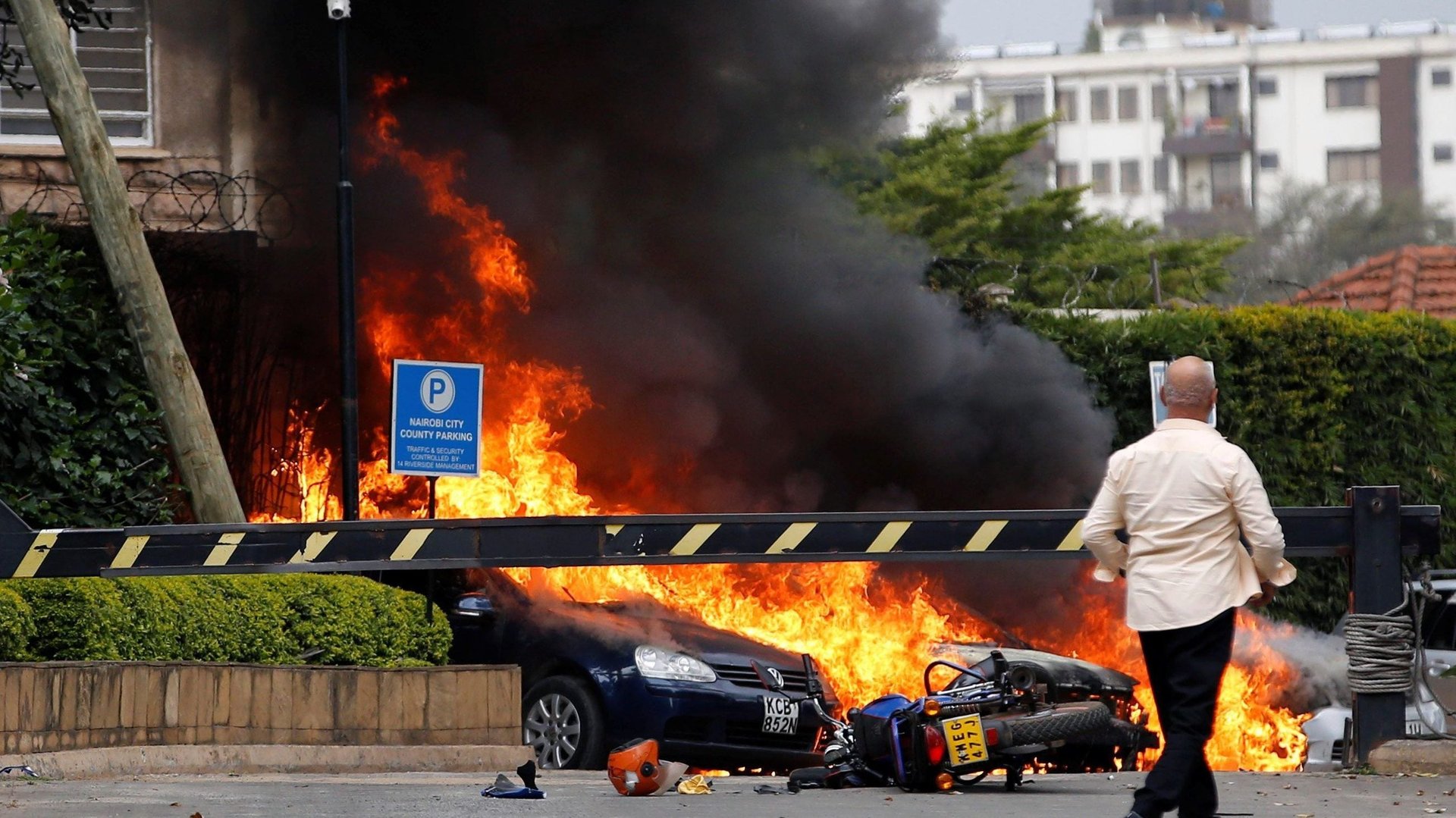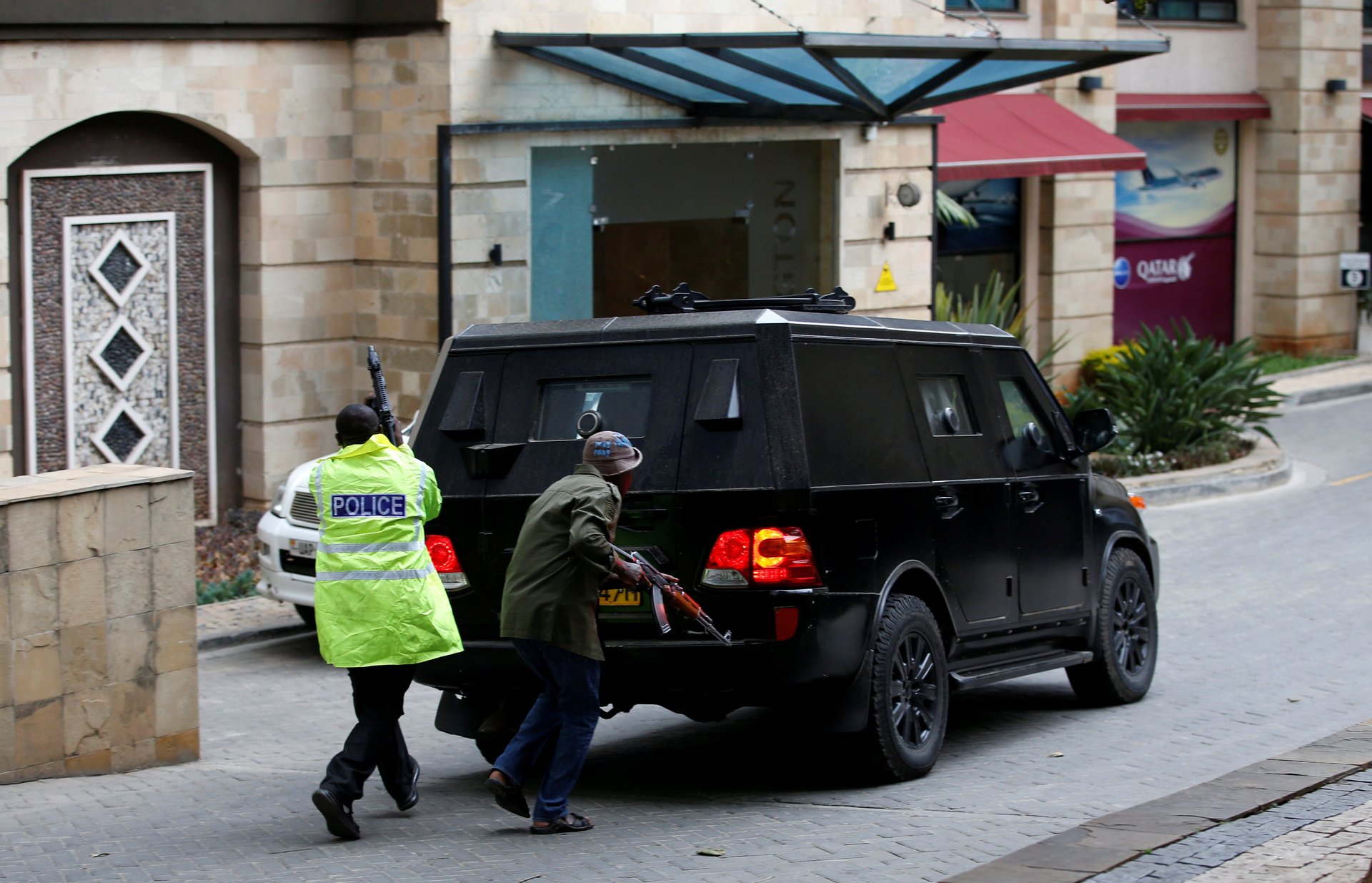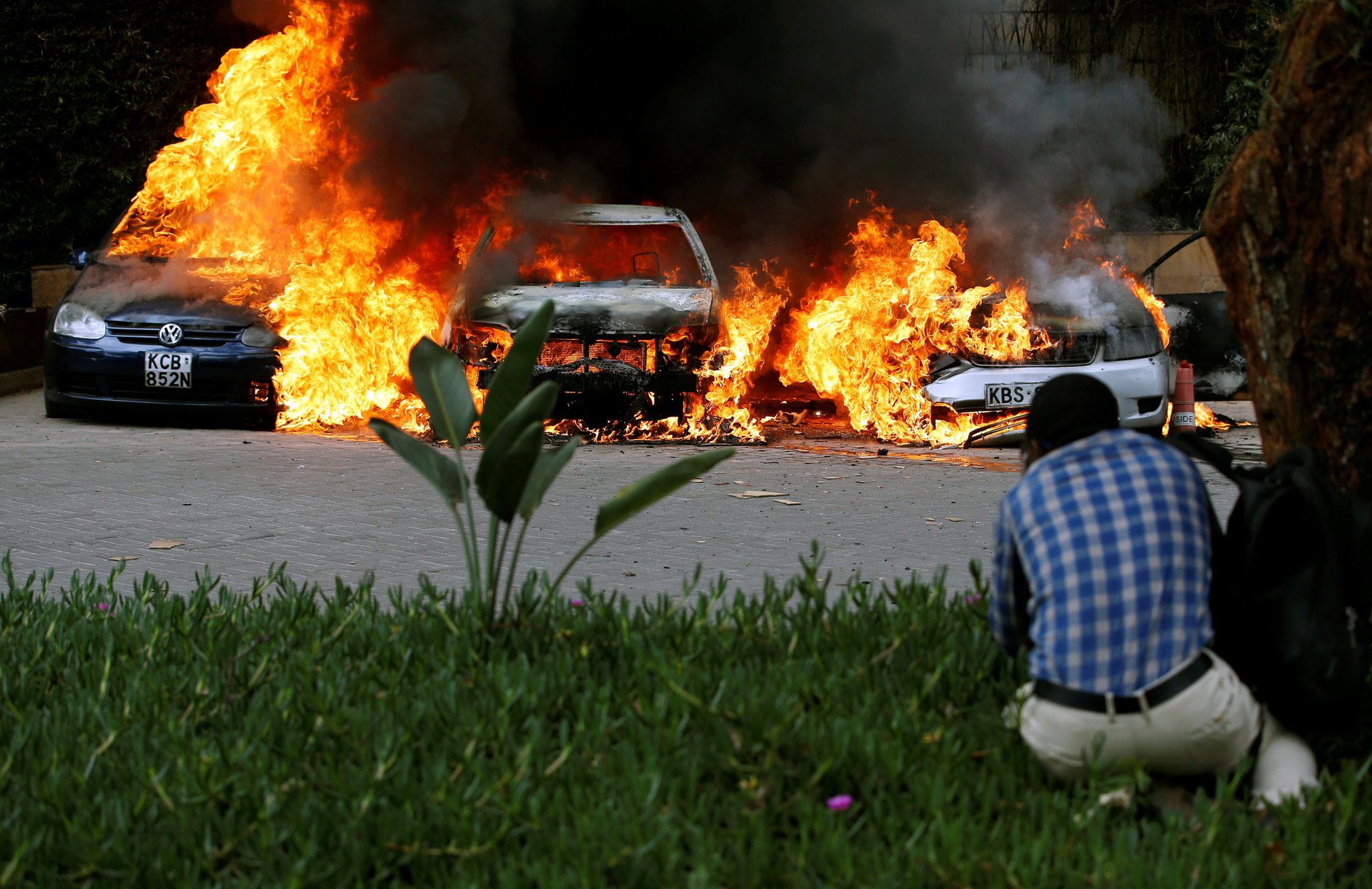An upscale Nairobi building complex has been attacked by terrorist group al-Shabaab
Explosions and gunfire ripped through a business complex in Nairobi on Tuesday (Jan. 15), in an attack claimed by the al-Qaeda-linked Somali terrorist group al-Shabaab.


Explosions and gunfire ripped through a business complex in Nairobi on Tuesday (Jan. 15), in an attack claimed by the al-Qaeda-linked Somali terrorist group al-Shabaab.
Police confirmed the assault happened after 3 pm local time in 14 Riverside, which houses offices, retail outlets, and restaurants along with the upscale DusitD2 hotel. The coordinated attack first started at the I&M Bank, followed by an explosion that targeted three vehicles in the parking lot, trailed by a suicide explosion in the foyer of Dusit hotel where a number of guests suffered injuries. The inspector general of police Joseph Boinnet confirmed there were injuries but didn’t confirm any casualties. Media reports put the number of dead at between five and 14 people.
Several wounded victims were also removed from the premises with emergency services including the Kenya Red Cross arriving at the scene to provide first aid. One person inside the complex who texted Quartz Africa said they had locked the doors to their offices and “barricaded” themselves with two colleagues in the boardroom. They also said they didn’t know what was going on and how or if they will be evacuated.

The upscale area in the west of Nairobi is home to several embassies, banks, and offices spaces, with the Australian high commission located just down the road. A University of Nairobi dormitory is also next door; students were evacuated as security officials arrived in the scene. As panic spread throughout the capital, the Village Market mall almost 5 miles (7 kilometers) away near the US embassy in Gigiri announced it was closing as a “security precaution.”
Initially, there was confusion between whether the attack was a robbery or a suspected terrorist attack. Kenya has previously been the target of several deadly attacks carried out by the Somali terrorist group al-Shabaab. The group is considered one of the deadliest terror outfits on the continent.
In 2013, gunmen stormed the Westgate shopping mall tossing hand grenades and spraying shoppers with bullets leading to the death of 67 people. 148 people were also killed at the Garissa University College in Kenya’s northeast region in mid-2015. The attack also happened on the eve of a verdict in the trial of three men accused of orchestrating the attack on Westgate.
Officials said supporters of al-Shabaab took to social media to praise the attacks; reports showed they were sharing celebratory notes on the encrypted messaging service Telegram. Cautioning the public from retweeting or sharing them, Boinnet said “sympathizers of these criminals have taken to the internet using old and quite disturbing images all of which have nothing to do with today’s incident in an attempt to spread needless fear and despondency among members of the public.”

Uncertainty continues to loom over the rescue process, as reports surfaced that hostages were being held in the building. Al-Shabaab has previously held people captive during attacks, holding Christians and freeing Muslims during the attack on Garissa university.
Security officers took almost seven hours to secure the building, announcing after 11 pm local time that they had cleared the compound and evacuated scores of people from various nationalities. “We are now in the final stages of mopping up the area and securing evidence and documenting the consequences of these unfortunate events,” interior secretary Fred Matiang’i said.
*This story will be updated as more information is confirmed
Sign up to the Quartz Africa Weekly Brief here for news and analysis on African business, tech and innovation in your inbox